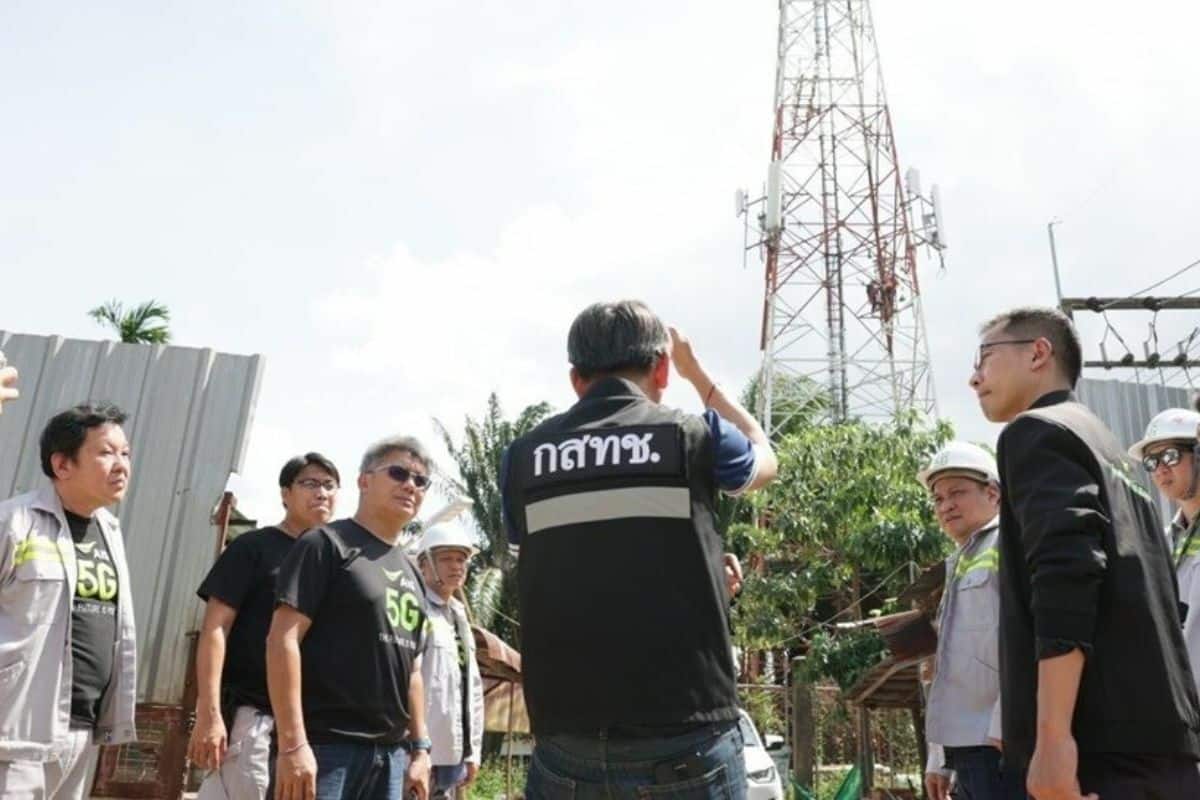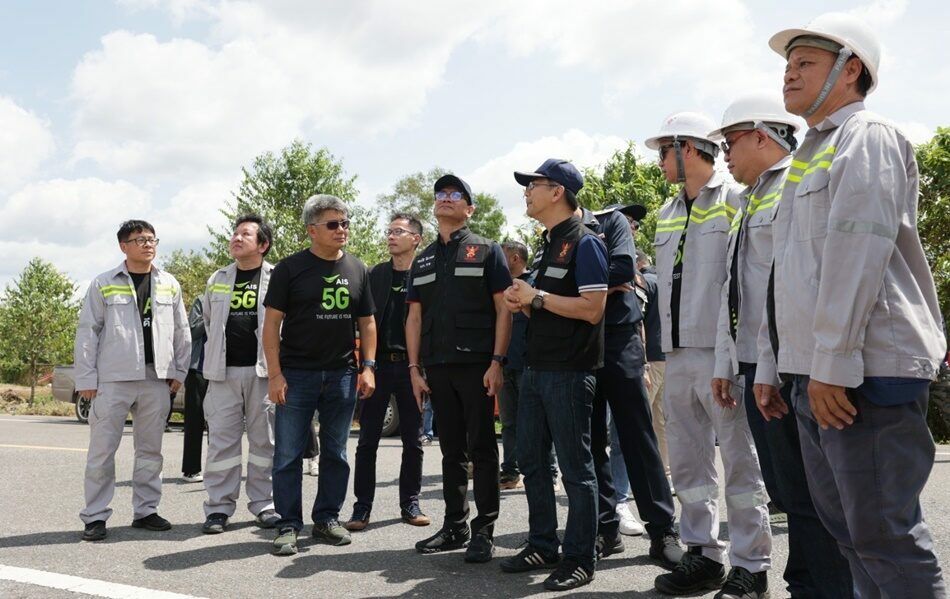AIS bolsters border security by adjusting signal towers

AIS is taking proactive measures to support the government’s efforts to manage and regulate mobile signal towers near border areas at risk of cross-border criminal activity by call centre gangs.
Regional executives and engineers from AIS, along with the National Broadcasting and Telecommunications Commission (NBTC) and cyber police, visited the border area in Sadao district, Songkhla province yesterday, February 17.
This area is categorised as group two, situated within 1 kilometre of the border. AIS has successfully adjusted the signal direction to remain within Thailand and controlled the transmission power to prevent it from spreading beyond the country’s borders. Additionally, the company has lowered the antenna height to 15 metres.
Furthermore, AIS has tagged all communication lines with network names in compliance with government measures aimed at proactively preventing and dismantling call centre gang networks.
AIS has rigorously adhered to government policies in high-risk border areas, spanning seven provinces and 11 districts, since mid-2024.
The company plans to complete further adjustments to signal towers in an additional 10 provinces within 30 days, ensuring that connections to signal points with neighbouring service providers are legally authorised.

To minimise impacts on customers and residents in border areas, AIS has taken steps to maintain network quality. These include installing small cells and deploying mobile base station vehicles to ensure continued communication services for the public, reported KhaoSod.
A recent survey by the National Institute of Development Administration (NIDA) shows strong public support for cutting utilities in Myanmar to combat call centre scams. Conducted on February 10 to 11, the poll gathered opinions from 1,310 Thai nationals across various backgrounds.
The results reveal that 70.54% of respondents fully support severing utilities in suspected scam hotspots, believing it will disrupt criminal networks. An additional 21.07% cautiously approve of the measure.
With concerns over possible collusion within Thai ranks, the government’s crackdown strategy is gaining momentum, reflecting a nationwide push to dismantle these fraudulent operations.
Latest Thailand News
Follow The Thaiger on Google News:


























